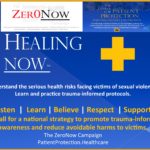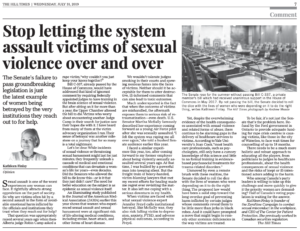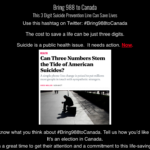


Sometimes the harm occurs out of ignorance or lack of understanding about the nature of trauma, including neurobiological and medical sequelae. But too often it is intentionally inflicted by bad actors and enabling organizations seeking to perpetuate a culture of fear and silence. It is time to raise awareness among legislators, policy makers, healthcare professionals, the judiciary, and everyone who interacts with victims, of these risks so they can be properly addressed. Trauma-informed care, designed to reduce the risks of re-traumatization and minimize avoidable harm, should be adopted as the standard of practice. We also need to reimagine our approach to the prevention of suicide, which has reached the level of a healthcare crisis among some parts of the population. Creation of a three-digit 988 telephone number, recommended by the U.S. FCC, for accessing suicide prevention services will save lives. It needs to be made an immediate priority.